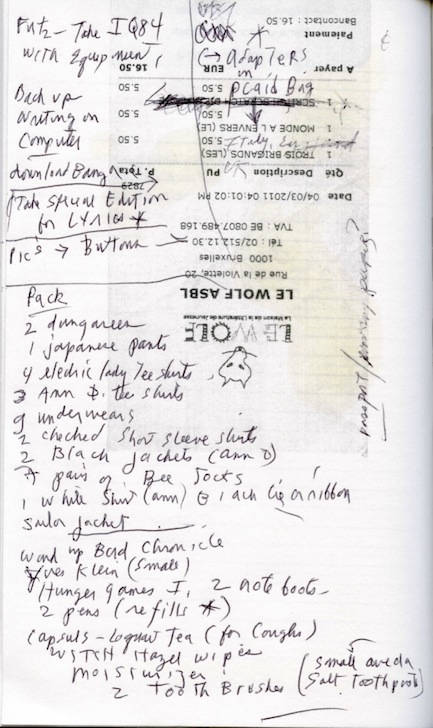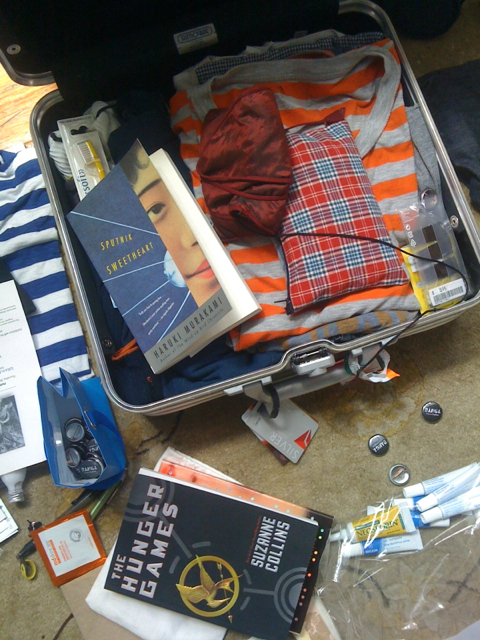James Mercer Langston Hughes’ poetry—joyful, celebratory, cutting, filled with deep longing, playful jabs, bittersweet images, and earnest affirmations—is pre-eminently African American poetry. But in saying that I mean also to say that it is pre-eminently American poetry, as the jazz and blues Hughes drew so much from is pre-eminently American music. Hughes was committed to the promises of the American experiment—despite and in full recognition of its vicious contradictions—and he was also in lively conversation with the poets who captured and transmuted the country’s unique voices.
His “major early influences,” writes critic Arnold Rampersad, “were Walt Whitman, Carl Sandburg, as well as the black poets Paul Lawrence Dunbar, a master of both dialect and standard verse, and Claude McKay, a radical socialist who also wrote accomplished lyric poetry.” All of these influences are readily apparent in his early work, and it was Sandburg who led him “toward free verse and a radically democratic modernist aesthetic.”
Hughes also descended from a radical political tradition, his chosen first name, Langston, the surname of an abolitionist grandfather who died fighting with John Brown; when his grandmother remarried, it was to a prominent Reconstruction politician. It’s a legacy that seems to have inspired in the poet a fierce hope for the country’s future that he expresses in that famous response to Whitman, “I, Too.”
Tomorrow,
I’ll be at the table
When company comes.
Nobody’ll dare
Say to me,
“Eat in the kitchen,”
Then.Besides,
They’ll see how beautiful I am
And be ashamed—
The lines of his collected works have been read aloud in countless classrooms and from countless stages as representing the best of the Harlem Renaissance’s buoyant critique and celebration of everything contained in the designation “African-American.” That’s not to say that Hughes’ poetry or his vision resonated with all of his contemporaries.
Two years after his death in 1967, author Lindsay Patterson in the New York Times called Hughes “the most abused poet in America…. Serious white critics ignored him, less serious ones compared his poetry to Cassius Clay doggerel, and most black critics only grudgingly admired him. Some like James Baldwin, were downright malicious about his poetic achievement.” Baldwin, writes Anita Patterson (no relation to Lindsay), “faulted Hughes for failing to follow through consistently on the artistic premises laid out in his early verse.” The later poems, wrote Baldwin in 1959, “take refuge, finally, in a fake simplicity.”
And yet, Lindsay Patterson pointed out, critics like Baldwin and others mistook “the simple form and language of Hughes’ poetry for paucity of meaning. His real meanings are never that apparent,” and his poetry “must be heard, rather than read silently, for one to realize its emotional scope.” In 1962 and 63, Hughes sat down with the BBC for a series of readings and interviews, and later, Caedmon Records, who have for many decades recorded and preserved the voices of 20th poetry, released portions of those sessions as part of their “Essential” series. That recording has now been fully released on Spotify (stream the 47 minute recording right below), and apparently YouTube too.
You can hear Hughes read the familiar favorite “The Negro Speaks of Rivers” (top) and below it, an autobiographical introduction to the poem. Further down, hear the less well-known, and much more trenchant, poem, “The South,” which begins with grotesque, almost Faulknerian images in its opening lines:
The lazy, laughing South
With blood on its mouth.
The sunny-faced South,
Beast-strong,
Idiot-brained.
The child-minded South
Of another lesser-known poem, “Merry-go-Round,” above, Hughes says in commentary titled “In My Poetry”: “I’ve never been at a loss for moving subject matter because I myself have faced many of these racial problems all over the United States, having lived from one end of the country to the other, in my now more than 50 years of life. One of the dramatic ways of expressing the race problem, I’ve found, is to express it through the eyes of a child, and I have done this through stories and poetry.”
In the short, violent “Ku Klux Klan,” above (sometimes published as just “Ku Klux”) —a poem still tragically all too relevant—Hughes dramatizes the brutality a racist ideology requires to force others to acknowledge it. The internal rhymes and brevity of the poem present us with an almost comic contrast to the subject. It is, writes critic John Moore, “a strangely humorous poem,” suggesting “the possibility that the man being lynched might be laughing” at “the ritualized bombasity of the Klansman,” further inciting his rage.
The early lyric poems in this recording show us Hughes engaging directly with the legacies of slavery and Jim Crow and their lasting effects; in these poems, he names “the bitter truth” Baldwin accused him, unfairly, of hiding behind the “hieroglyphics” of jazz idioms in later works like Montage of Dream Deferred. The bits of explanation and autobiography between the recorded readings make the whole album a very rewarding listen. Whether you already know Hughes’ poetry well or have only encountered famous poems like “Harlem,” The Essential Langston Hughes will likely show you a side of the poet you may not have known before.
Related Content:
Watch Langston Hughes Read Poetry from His First Collection, The Weary Blues (1958)
Langston Hughes Presents the History of Jazz in an Illustrated Children’s Book (1955)
Hear Hemingway Read Hemingway, and Faulkner Read Faulkner (90 Minutes of Classic Audio)
Hear Tennessee Williams Read Hart Crane’s “The Broken Tower” and “The Hurricane” (1960)
Josh Jones is a writer and musician based in Durham, NC. Follow him at @jdmagness



